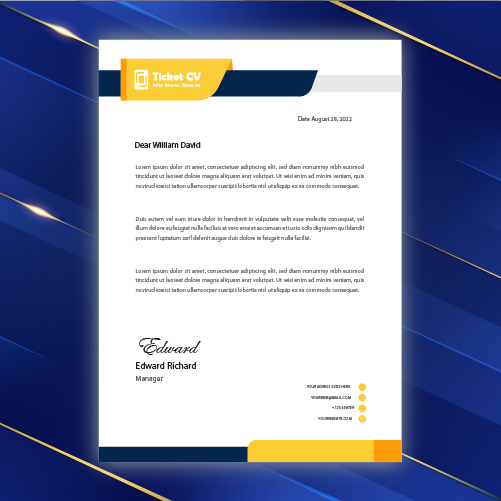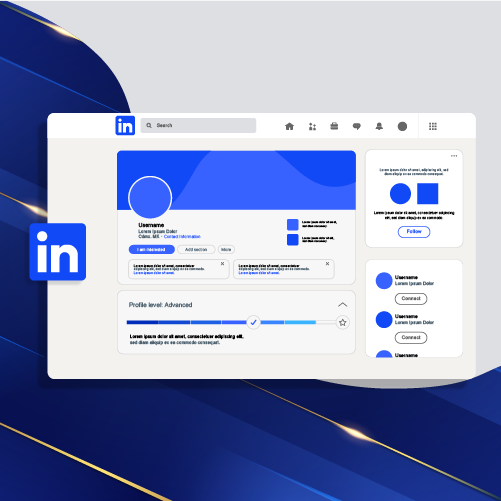Are Skype Interviews Legit? Protect Yourself from Scams
- Benefits of Skype Interviews
- Confidence in Legitimacy
- Preparing for a Skype Interview
- Overcoming Challenges
- Recognizing the Signs of Skype Interview Scams
- Fake Job Postings
- Unprofessional Communication and Requests for Personal Information
- Vague Job Descriptions
- Ensuring the Security of Skype Interviews
- Employers Should Ensure Secure Environments
- Strengthening Security Measures
- Prioritizing Privacy and Data Protection
- Safeguarding Yourself from Video and Chat Interview Scams
- Avoid Clicking Suspicious Links
- Trust Your Instincts
- Protecting Against Deepfake Technology in Interviews
- Poses a Risk in Creating Deceptive Interview Content on Platforms Like Skype
- Implement Verification Processes for Authenticity of Interview Recordings
- Candidates Should Remain Vigilant Against Deepfake Manipulation During Virtual Interviews
- Verifying Identities in Skype Interviews
- Utilizing Official Company Accounts
- Confirming Identities Through Multiple Channels
- Candidate Verification of Interviewer’s Identity
- Understanding the Rise of Work-from-Home Scams
- Remote Work and Work-from-Home Scams
- Researching Companies for Protection
- Awareness of Common Scam Tactics
- Preventing Installation of Suspicious Apps During Interviews
- Are Skype interviews safe from identity theft?
- How can I recognize a Skype interview scam?
- What should I do if I suspect a Skype interview scam?
- Can deepfake technology be used in Skype interviews?
- How do I ensure the security of my Skype interview?
Skype interviews are the new norm in the job market, offering a convenient and efficient way for employers and candidates to connect. As technology advances, more people are turning to this platform for its ease of use. However, amidst this convenience lies the need to understand the legitimacy and potential risks associated with Skype interviews. It’s crucial to consider how personal information is shared, ensuring that identities are protected throughout the process. As job seekers look for opportunities, it’s essential to be aware of the terms and conditions when using Skype for professional connections. In this post, we’ll delve into the details of Skype interviews, shedding light on their legitimacy and providing insights into safeguarding your identity during these virtual interactions.
Table of Contents
ToggleUnderstanding the Legitimacy of Skype Interviews

Many reputable companies use Skype interviews as a standard part of their hiring process. This method allows employers to conduct interviews with candidates from different geographical locations, providing them with an opportunity to connect with a diverse pool of talent.
Benefits of Skype Interviews
Skype interviews offer numerous benefits, making them a legitimate and efficient tool for both employers and candidates. Firstly, they provide cost savings by eliminating the need for travel expenses associated with traditional in-person interviews. Conducting interviews via Skype saves time for both parties involved, as there is no commute or waiting time required. Moreover, Skype interviews enable global accessibility, allowing employers to reach out to potential candidates worldwide without any geographical constraints.
Confidence in Legitimacy
Candidates should feel confident in the legitimacy of Skype interviews when conducted by legitimate employers. Reputable companies often use video conferencing tools like Skype to streamline their hiring processes and ensure that they can assess candidates effectively regardless of their location. It’s essential for job seekers to verify the authenticity of the employer and the position before engaging in a Skype interview. Researching the company’s website, checking its online presence and reviews, and confirming the interviewer’s identity can help candidates ensure that they are dealing with a genuine opportunity.
Preparing for a Skype Interview
To make the most out of a Skype interview, candidates should prepare just as thoroughly as they would for an in-person meeting. It’s crucial to create an appropriate setting for the interview by choosing a quiet and well-lit space with minimal distractions. Dressing professionally from head to toe can also contribute to creating a positive impression during the virtual interaction. Furthermore, testing equipment such as the camera, microphone, and internet connection beforehand is vital to avoid technical issues during the interview.
Overcoming Challenges
While Skype interviews offer various advantages, they also present unique challenges that require careful consideration. Technical glitches such as poor internet connectivity or audiovisual problems can disrupt the flow of communication during an interview. Candidates should be prepared to troubleshoot these issues promptly or have alternative communication methods ready if necessary.
Recognizing the Signs of Skype Interview Scams
Fake Job Postings
Scammers often use fake job postings on platforms like Upwork to entice unsuspecting candidates into fraudulent Skype interviews. These postings may appear legitimate at first glance, but they are designed to deceive individuals seeking employment opportunities.
Unprofessional Communication and Requests for Personal Information
One of the key signs of a potential Skype interview scam is unprofessional communication from the supposed employer. This can include poor grammar, spelling errors, or overly casual language in official correspondence. Scammers may request sensitive personal information such as social security numbers, bank account details, or copies of identification documents early in the interview process.
Vague Job Descriptions
Candidates should be wary of vague job descriptions that lack specific details about the role, responsibilities, or company. Legitimate employers typically provide comprehensive information about the position and their organization to help applicants make informed decisions. If a job posting or interviewer fails to offer clear insights into these aspects, it could indicate a potential scam.
It’s crucial for candidates to remain vigilant and recognize these signs when engaging in Skype interviews to safeguard themselves against fraudulent activities. By being aware of these warning signals, individuals can protect their personal information and avoid falling victim to scams that exploit their desire for employment opportunities.
Ensuring the Security of Skype Interviews

Employers Should Ensure Secure Environments
Employers play a crucial role in ensuring that Skype interviews are conducted in secure and private environments. It is essential for employers to create a safe virtual space for the interview process, just as they would for an in-person meeting. This involves taking measures to prevent unauthorized access and protect sensitive information exchanged during the interview.
Strengthening Security Measures
Using strong passwords and enabling two-factor authentication are effective ways to enhance security during Skype interviews. Strong passwords should be a combination of letters, numbers, and special characters, making them difficult for hackers to crack. Enabling two-factor authentication adds an extra layer of security by requiring verification through a secondary device or method.
Prioritizing Privacy and Data Protection
Both employers and candidates should prioritize privacy and data protection throughout the entire interview process. Employers must respect candidates’ privacy rights by safeguarding their personal information shared during the interview. Similarly, candidates should also be mindful of sharing sensitive details only with authorized individuals representing the potential employer.
Maintaining a secure environment during Skype interviews is paramount to protect both parties from potential cybersecurity threats. By implementing robust security measures, employers can create a safe virtual space for conducting interviews while upholding privacy and data protection standards.
Safeguarding Yourself from Video and Chat Interview Scams
Candidates should verify the legitimacy of the company before engaging in video or chat interviews on Skype. Research the company’s website, check for online reviews, and ensure that the email address used for communication matches the official domain of the organization. Look for any red flags such as vague job descriptions, unprofessional communication, or requests for personal information before an interview.
Avoid Clicking Suspicious Links
During a Skype interview, it’s crucial to avoid clicking on suspicious links or downloading files. Scammers may use seemingly innocent links or attachments to gain unauthorized access to your device or obtain sensitive information. Always be cautious of unexpected files sent during an interview and refrain from opening them until their authenticity is confirmed by contacting the company directly.
Trust Your Instincts
Trust your instincts and be cautious if something feels off during a video or chat interview on Skype. If the interviewer asks for confidential details like bank account information, social security numbers, or passport details without a valid reason, it’s essential to question their motives. Remember that legitimate employers will never ask for this type of sensitive information during an initial interview process.
It’s important to remember that scammers often attempt to exploit job seekers’ eagerness to secure employment by creating elaborate schemes designed to deceive individuals during video interviews. By staying vigilant and following these precautions, candidates can significantly reduce their vulnerability to potential scams.
Protecting Against Deepfake Technology in Interviews
Deepfake technology, a concerning development, poses a significant risk in creating deceptive interview content on platforms like Skype. Employers must take proactive measures to safeguard against the potential misuse of deepfake technology during interviews conducted over Skype. Implementing verification processes to confirm the authenticity of interview recordings becomes imperative in mitigating the risks associated with deepfake manipulation.
Poses a Risk in Creating Deceptive Interview Content on Platforms Like Skype
The emergence of deepfake technology has raised serious concerns about its potential misuse in creating deceptive interview content. With the advanced capabilities of deepfake tools, it has become increasingly challenging to discern between authentic and manipulated video content. This presents a substantial risk for both employers and candidates participating in virtual interviews via platforms such as Skype.
Implement Verification Processes for Authenticity of Interview Recordings
Employers need to establish robust verification processes to ensure the authenticity of interview recordings conducted through Skype or similar platforms. By implementing multi-factor authentication methods or utilizing secure interview platforms with built-in encryption features, organizations can significantly reduce the likelihood of deepfake manipulation. Employing digital signatures or watermarking techniques can serve as effective measures to verify the integrity of interview recordings.
Candidates Should Remain Vigilant Against Deepfake Manipulation During Virtual Interviews
Candidates engaging in virtual interviews should remain vigilant and exercise caution against potential deepfake manipulation. It is crucial for candidates to be aware of the existence of deepfake technology and its possible implications during virtual interviews. Moreover, staying informed about best practices for verifying the authenticity of interview recordings can empower candidates to identify and report any suspicious or manipulated content effectively.
Verifying Identities in Skype Interviews

Employers should conduct thorough identity verification processes for candidates participating in Skype interviews. This is crucial to ensure that the person being interviewed is indeed the candidate they claim to be. Verifying identities can help prevent fraudulent activities and safeguard the integrity of the hiring process.
Utilizing Official Company Accounts
Employers can enhance identity verification by using official company accounts for initiating Skype interviews. By using verified company accounts, candidates can be assured that they are interacting with genuine representatives of the organization. This measure also adds an additional layer of security, as it becomes more challenging for impostors to replicate official company accounts.
Confirming Identities Through Multiple Channels
To bolster security, employers can verify a candidate’s identity through multiple channels. For example, after an initial interaction on Skype, employers may request candidates to provide additional identification documents or participate in a video call through a different platform. This multi-channel approach minimizes the risk of impersonation scams and ensures that the interview process maintains its legitimacy.
Candidate Verification of Interviewer’s Identity
In addition to employers verifying candidates’ identities, it is equally important for candidates to authenticate the legitimacy of the interviewer’s identity before engaging in a Skype interview. Candidates should confirm that they are communicating with authorized representatives of the company by cross-referencing contact details provided by the organization and researching the interviewer’s professional background when possible.
By implementing these measures, both employers and candidates contribute to creating a secure and trustworthy environment for conducting Skype interviews during the hiring process.
Understanding the Rise of Work-from-Home Scams
Remote Work and Work-from-Home Scams
The surge in remote work opportunities has created a breeding ground for work-from-home scams, especially during the interview process conducted on platforms like Skype. Fraudulent entities take advantage of the virtual nature of these interviews to deceive unsuspecting job seekers.
Researching Companies for Protection
Job seekers must diligently research companies offering remote positions to shield themselves from falling victim to work-from-home scams during Skype interviews. It’s crucial to verify the legitimacy of the company by checking their website, reading reviews, and ensuring they have a physical address and contact information.
Awareness of Common Scam Tactics
Being aware of common work-from-home scam tactics is essential for protecting oneself during remote job interviews on Skype. Job seekers should be cautious if asked to pay upfront fees, provide personal financial information, or engage in activities that seem unrelated to the job role.
The rise of remote work has significantly impacted how individuals seek employment, with many turning to online platforms such as Skype for job interviews. While this shift offers convenience and flexibility, it has also opened the door for malicious actors looking to exploit unsuspecting job seekers through work-from-home scams.
As more companies embrace telecommuting and virtual interviews become commonplace, it’s imperative for job seekers to exercise due diligence when pursuing remote opportunities. By researching companies thoroughly and familiarizing themselves with common scam tactics, individuals can protect themselves from falling prey to fraudulent schemes during Skype interviews.
Preventing Installation of Suspicious Apps During Interviews
It’s essential to be cautious about installing unfamiliar applications. Candidates should never install any unfamiliar or suspicious apps requested during a Skype interview. This is crucial for protecting personal devices and sensitive information from potential security threats.
Verify with the Employer
Before proceeding with a job interview on Skype, it’s important to verify with the employer if any software installation is necessary. Reach out to the hiring manager or recruiter to confirm whether there are specific applications that need to be installed for the interview process. By doing so, candidates can ensure that they are not inadvertently exposing their devices to potential risks.
Exercise Caution
Protecting your device from potential malware is paramount when prompted to install apps during a Skype interview. Exercise caution and skepticism when encountering such requests, especially if the application seems unrelated to the interview process. It’s advisable to research any requested app before installation and verify its legitimacy. Consider using reliable antivirus software as an added layer of protection against potential threats.
During remote interviews, scammers may attempt to take advantage of candidates by disguising malicious software as legitimate applications required for the interview process. By exercising vigilance and verifying with employers before installing any software, candidates can safeguard their devices and personal information from potential cyber threats.
Responding if You Fall Victim to a Scam

If you suspect you’ve fallen victim to a scam after a Skype interview, it’s crucial to take immediate action. The repercussions of scams can be far-reaching, so reporting the incident promptly is essential.
Report Scam Immediately
Reporting the scam should be your first course of action. Contact the platform through which the interview was conducted and provide details of the incident. Inform relevant authorities such as law enforcement agencies or consumer protection organizations. By doing so, you contribute to preventing others from falling into similar traps.
Secure Personal Information
After experiencing a scam during a job interview on Skype, it’s important to secure your personal information. Change passwords for your email and any other accounts where sensitive data may have been shared. Be cautious of unsolicited emails or messages from unknown sources and refrain from clicking on any links or providing personal details unless absolutely certain about their legitimacy.
Seek Legal Advice
In cases where significant harm or financial loss has occurred due to the scam, seeking legal advice becomes necessary. A legal professional can guide you on potential recourse options and advise on steps to mitigate damages caused by the fraudulent activity.
Swift Action is Key
Taking swift action is critical when dealing with scams related to Skype interviews. Delays in responding may allow scammers to cover their tracks effectively, making it harder for authorities to track them down. Therefore, being proactive in addressing the situation can significantly aid in minimizing potential harm caused by the scam.
Conclusion
You’ve learned how to spot the red flags and protect yourself during Skype interviews. Remember, scammers are constantly evolving, so stay vigilant and trust your instincts. If something feels off, it’s okay to question it. As you navigate the digital landscape of job interviews, always prioritize your safety and security. By being proactive and informed, you can confidently engage in Skype interviews while safeguarding yourself from potential scams.
Remember, knowledge is power. Stay informed, stay safe, and best of luck with your future Skype interviews!
Frequently Asked Questions
Are Skype interviews safe from identity theft?
Yes, Skype interviews can be safe from identity theft if you take precautions like verifying the interviewer’s identity, using secure internet connections, and being cautious about sharing personal information.
How can I recognize a Skype interview scam?
You can recognize a Skype interview scam by looking out for red flags such as unprofessional communication, requests for payment or personal information, and suspicious job offers that seem too good to be true.
What should I do if I suspect a Skype interview scam?
If you suspect a Skype interview scam, it’s important to cease communication immediately, report the incident to the relevant authorities or platform, and safeguard your personal information to prevent any potential misuse.
Can deepfake technology be used in Skype interviews?
Yes, deepfake technology can potentially be used in Skype interviews to manipulate video content. It’s crucial to verify the authenticity of the interview and remain vigilant against potential misuse of such technology.
How do I ensure the security of my Skype interview?
To ensure the security of your Skype interview, use strong passwords for your account, enable two-factor authentication if available, update your software regularly, and avoid clicking on suspicious links or downloading unknown files during the interview process.











